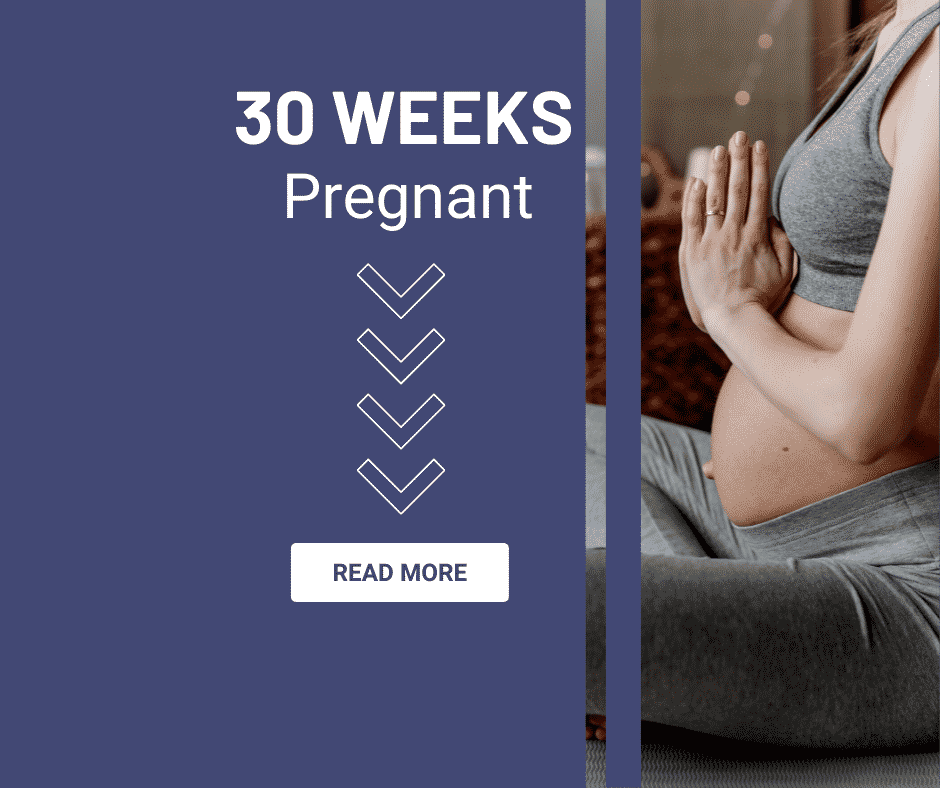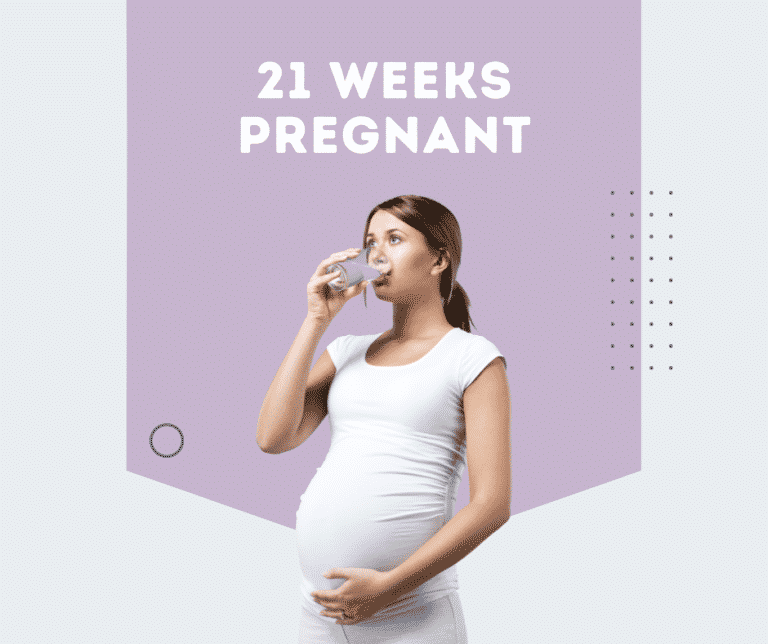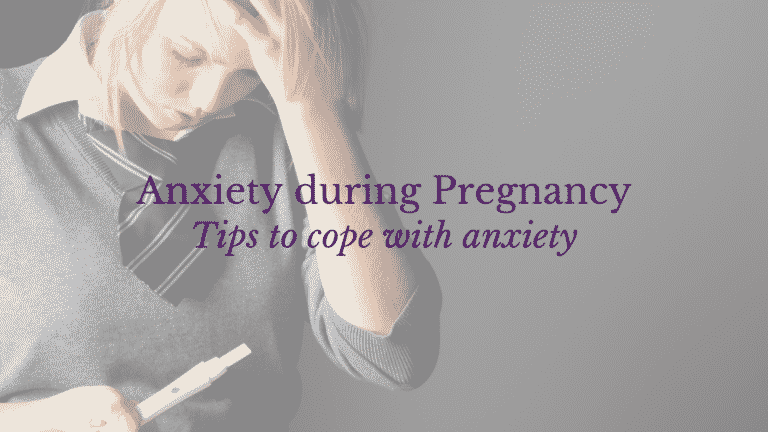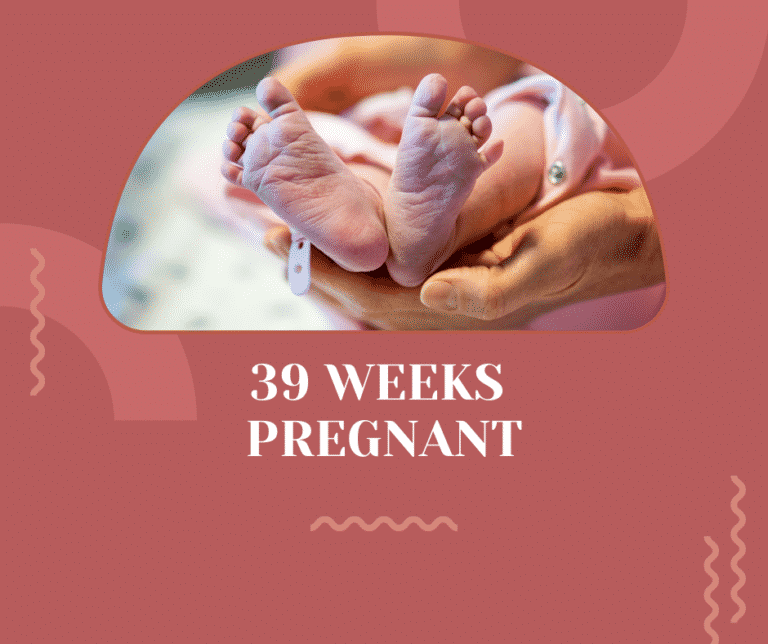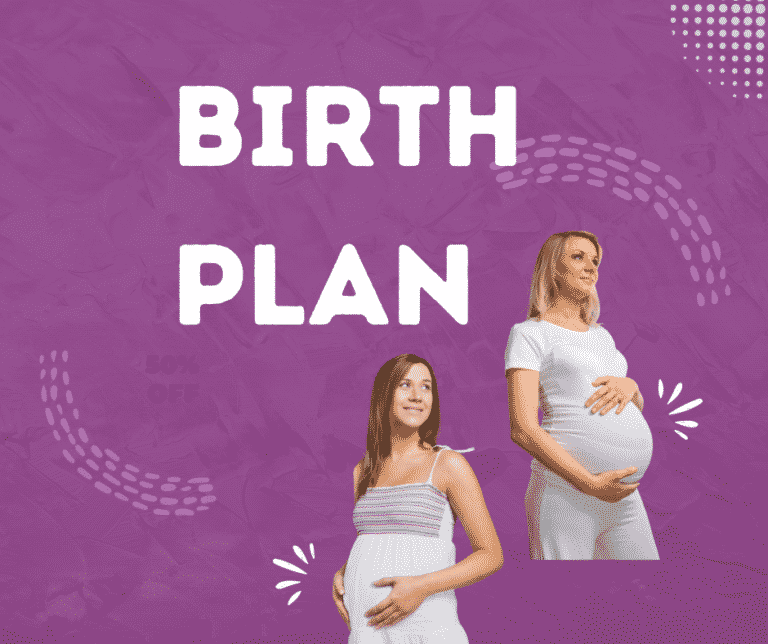30 Weeks Pregnant: Signs, Tips, Symptoms & Baby’s Development
Published on April 12, 2022 – Last Updated on October 18, 2022
You are now 30 weeks pregnant. This week is an important milestone, as your baby is starting to grow rapidly, and their organs are becoming more developed. You should be aware of a few things in the coming weeks, including changes to your body and tips for preparing for labor.
In this blog post, we can discuss the expectation for this week, changes in your body, symptoms, and last but not least, I mean the tips for a healthy pregnancy. So to be engaged and keep reading for better understanding.
What to expect during the 30th week of your pregnancy
While you are 30 weeks pregnant, you may expect the following changes:
Your baby continues to grow rapidly, and its organs are becoming more developed. As a result, you may feel more tired as your body works harder to support your growing baby. You may also notice more changes in your skin, including stretch marks. In addition, the baby’s movements will become more pronounced, and you may feel kicks and jolts as they turn and stretch inside your womb.
Your doctor will likely continue to monitor your pregnancy closely, with more frequent checkups and ultrasounds. This is to make sure that you and your baby are healthy and progressing well.
Find out more about your conception date due date and pregnancy stages week by week.
Third Trimester: 30 Weeks Pregnant
Your baby grows rapidly, and its organs are becoming more developed. As a result, you may feel more tired as your body works harder to support your growing baby. You may also notice more changes in your skin, including stretch marks. In addition, the baby’s movements will become more pronounced, and you may feel kicks and jolts as they turn and stretch inside your womb.
How your baby is developing at 30 Weeks Pregnant
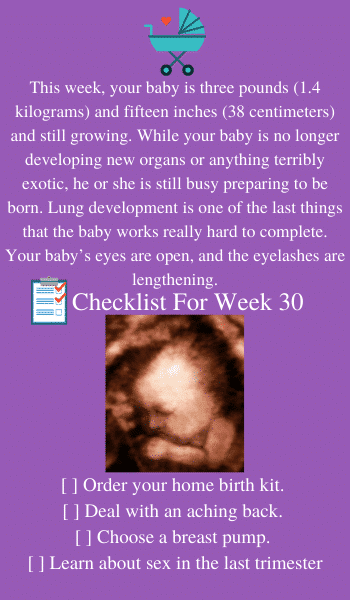
Your baby is near completion, but there’s still some tweaking as the final pieces of the complex baby-making puzzle are installed! Your kid measures about the size of 39.9cm long now and weighs about 2.9 pounds, and they continue to develop. Here is everything you need to know about your baby’s development at 30 weeks pregnant.
Baby’s Head – Baby’s Growth:
As the bones of your baby’s skull begin to fuse together, their head is growing more proportionately with the rest of their body. This process is called craniosynostosis.
Baby’s Movement:
Your baby is getting bigger and stronger and can now move around quite a bit in the womb. They may flip and turn, and their kicks and jabs can now be substantial.
Baby’s Brain:
Rapid brain development occurs in your brain during the last few weeks of pregnancy. This is when the cerebral cortex thickens, and myelin (a white fatty substance) starts to form around the nerve cells. This insulation helps speed up the transmission of messages between cells and is crucial for your baby’s future development.
Also, half of the amniotic fluid surrounds your baby. As a result, the cortex is vital for intellectual functions such as learning, memory, and consciousness. It’s not all smooth sailing, though – some babies are born with a few lumps and bumps on their heads due to the pressure on the skull during birth.
Baby’s Senses:
Your baby’s senses are also developing, and they can now respond to light and sound. For example, if you shine a flashlight on your stomach, your baby may move away from the light. If you make loud noises, your baby may startle or become agitated.
Your baby’s hearing is well developed now, and they can recognize your voice and the voices of other people who are close to you.
Baby’s Skin:
The skin is one of the last organs to develop, and it’s still thin and translucent. The
Baby’s Kidney:
The kidneys are almost fully functional, as are the intestines. However, the lungs are still maturing and won’t be ready for full function until about 34 weeks.
Baby’s Eyes:
The eyes can now dilate and contract in response to light, and your baby’s nerve cells multiply rapidly. This week, taste buds start forming on the tongue, and fingers become more dexterous. Read more on contractions: contraction app, contraction counter & how to track contractions.
30 Weeks Fetus
The 30-week mark is an essential milestone in fetal development. At this point, the fetus is fully formed and just beginning to grow and develop rapidly. Thirty weeks is also when most fetuses are considered viable, meaning they have a good chance of surviving if born prematurely. As a result, 30 weeks is necessary to monitor fetal development and ensure that everything is on track.
Several things can be done to help ensure a healthy pregnancy and delivery, so it’s important to consult with your doctor or midwife to ensure you’re taking all the necessary steps. With just a few weeks left to go, it’s essential to do everything you can to ensure a healthy and happy outcome for both you and your baby.
30 Weeks Belly
Thirty weeks pregnant belly is growing every day. It’s incredible how your body adjusts and expands to accommodate your baby. You may have already gained a few pounds, but don’t worry. You’ll lose it all once your baby arrives. Keep up the good work, Mama. You’re doing a fantastic job! Your baby is counting on you.
Changes in your body are going through
During the 30th week of pregnancy, your may notice some changes in your body also. For example, as your baby grows rapidly, you might feel more uncomfortable and have difficulty sleeping. You may also notice an increase in Braxton Hicks contractions, which are fake contractions that your body produces to prepare for labor.
You can ease out the bad symptoms by practicing hypnobirthing and using: positive pregnancy affirmations, birth affirmations, and hypnobirthing affirmations.
Pregnancy Symptoms at 30 Weeks Pregnant
At 30 weeks pregnant, you may be experiencing various pregnancy symptoms like mood swings and baby bump. The most common include:
- Braxton Hicks contractions.
- Itchy skin.
- Swelling
- Heartburn
- Pregnancy insomnia
- Diarrhea.
- Feeling short of breath.
Braxton Hicks contractions 30 Weeks Pregnant
You may start to experience Braxton Hicks contractions, which are painless uterus contractions during pregnancy. These contractions are regular and help to prepare your body for labor. However, if you experience frequent or painful contractions, don’t hesitate to contact your healthcare provider.
Itchy skin
As your skin stretches to accommodate your growing baby, you may start to experience itchiness on your belly, breasts, or thighs. This is normal and can be alleviated by using a moisturizing cream or lotion.
Swelling
Swelling is joint in pregnant women and can occur in the hands, feet, ankles, and face.
Heartburn
Many pregnant women experience heartburn caused by the stomach acids that flow back up into the esophagus.
Pregnancy insomnia
As your body changes, you may find it harder to get a good night’s sleep. For example, pregnancy insomnia can be caused by pregnancy hormones, anxiety over the upcoming birth, and physical discomfort.
Diarrhea
Diarrhea during pregnancy can be caused by several things, including hormones, anxiety, and changes in diet. If you experience severe diarrhea, please get in touch with your healthcare provider.
Feeling short of breath.
As your baby grows, they may start to press on your lungs, making you feel short of breath. This is normal and will usually resolve itself after birth.
Tips for staying healthy
As your baby continues to grow, you may start to feel more tired and uncomfortable. Here are a few tips to help you stay healthy and comfortable during this time:
Get plenty of rest:
You may find it challenging to get enough sleep as your pregnancy progresses. So make sure to take naps and go to bed early.
Eat healthily:
It is essential to eat a balanced diet and to avoid processed foods. Be sure to get plenty of fruits, vegetables, and whole grains.
Drink plenty of fluids:
You will need to drink more fluids as your pregnancy progresses. Stay hydrated by drinking plenty of water, juice, and milk.
Avoid stress:
Stress can harm your pregnancy. Try to relax and take time for yourself when you can.
Walk regularly:
Walking is a great way to stay healthy and comfortable during pregnancy. Try to walk for at least 30 minutes each day.
Tips for Partners during 30th Week of Pregnancy
Your partner is an essential part of your pregnancy and labor process, so include them in your preparations. Here are a few tips for helping them support you:
- Encourage your partner to attend prenatal appointments with you. This will help them understand what’s happening during your pregnancy and how they can best help during labor.
- Talk to your partner about your birth preferences and what you would like them to do during labor. This will help them feel prepared and confident in their role.
- Encourage your partner to stay healthy by eating well and exercising regularly during your pregnancy. This will help them have the energy and strength to support you during labor.
- Make sure your partner is aware of the signs of preterm labor, so they can help you identify if it’s happening and get you to the hospital quickly.
By following these tips, you and your partner can work together to create a positive and supportive environment during your pregnancy and labor.
Doctor Visit
This is an important milestone, as your baby is starting to grow rapidly and its organs are becoming more developed. You should be aware of a few things in the coming weeks, including changes to your body and tips for preparing for labor & must have a non-stress test.
You will likely have a doctor’s appointment this week to check on your baby’s development. Make sure to ask any questions about your pregnancy or the upcoming birth.
Tips for preparing for labor
Now is an excellent time to start thinking about how you want to give birth before the baby arrives. Many different options are available, such as epidurals, natural childbirth, and c-sections. Talk to your doctor to figure out what is best for you and your baby. You should also start making a birth plan and gathering all the supplies like baby clothes you will need before the baby’s arrival.
FAQs
Is your baby fully developed at 30 weeks pregnant?
Babies are considered full term at 37 weeks, so your baby is still growing and developing. Their organs are becoming more mature, and they are starting to put on weight. You may notice that they are moving less, as they are getting bigger and have less space to move around.
Are 30 weeks considered 8 months pregnant?
No, 30 weeks is considered 7 months pregnant.
What should you not do at 30 weeks pregnant?
There are a few things to avoid during pregnancy, including:
- drinking alcohol
- smoking cigarettes
- using illegal drugs
- exposure to certain chemicals
- working in a hot environment
- lifting heavy objects
- sitting or standing for long periods
If you have any concerns about activities during pregnancy, have an immediate meeting with your healthcare provider.
Other Pregnancy Weeks:
- 1 Week Pregnant
- 2 Weeks Pregnant
- 3 Weeks Pregnant
- 4 Weeks Pregnant
- 5 Weeks Pregnant
- 6 Weeks Pregnant
- 7 Weeks Pregnant
- 8 Weeks Pregnant
- 9 Weeks Pregnant
- 10 Weeks Pregnant
- 11 Weeks Pregnant
- 12 Weeks Pregnant
- 13 Weeks Pregnant
- 14 Weeks Pregnant
- 15 Weeks Pregnant
- 16 Weeks Pregnant
- 17 Weeks Pregnant
- 18 Weeks Pregnant
- 19 Weeks Pregnant
- 20 Weeks Pregnant
- 21 Weeks Pregnant
- 22 Weeks Pregnant
- 23 Weeks Pregnant
- 24 Weeks Pregnant
- 25 Weeks Pregnant
- 26 Weeks Pregnant
- 27 Weeks Pregnant
- 28 Weeks Pregnant
- 29 Weeks Pregnant
- 31 Weeks Pregnant
- 32 Weeks Pregnant
- 33 Weeks Pregnant
- 34 Weeks Pregnant
- 35 Weeks Pregnant
- 36 Weeks Pregnant
- 37 Weeks Pregnant
- 38 Weeks Pregnant
- 39 Weeks Pregnant
- 40 Weeks Pregnant
- Birth Plan
- Baby Due Date Calculator
- EDD Calculation
- how many weeks pregnant I am

